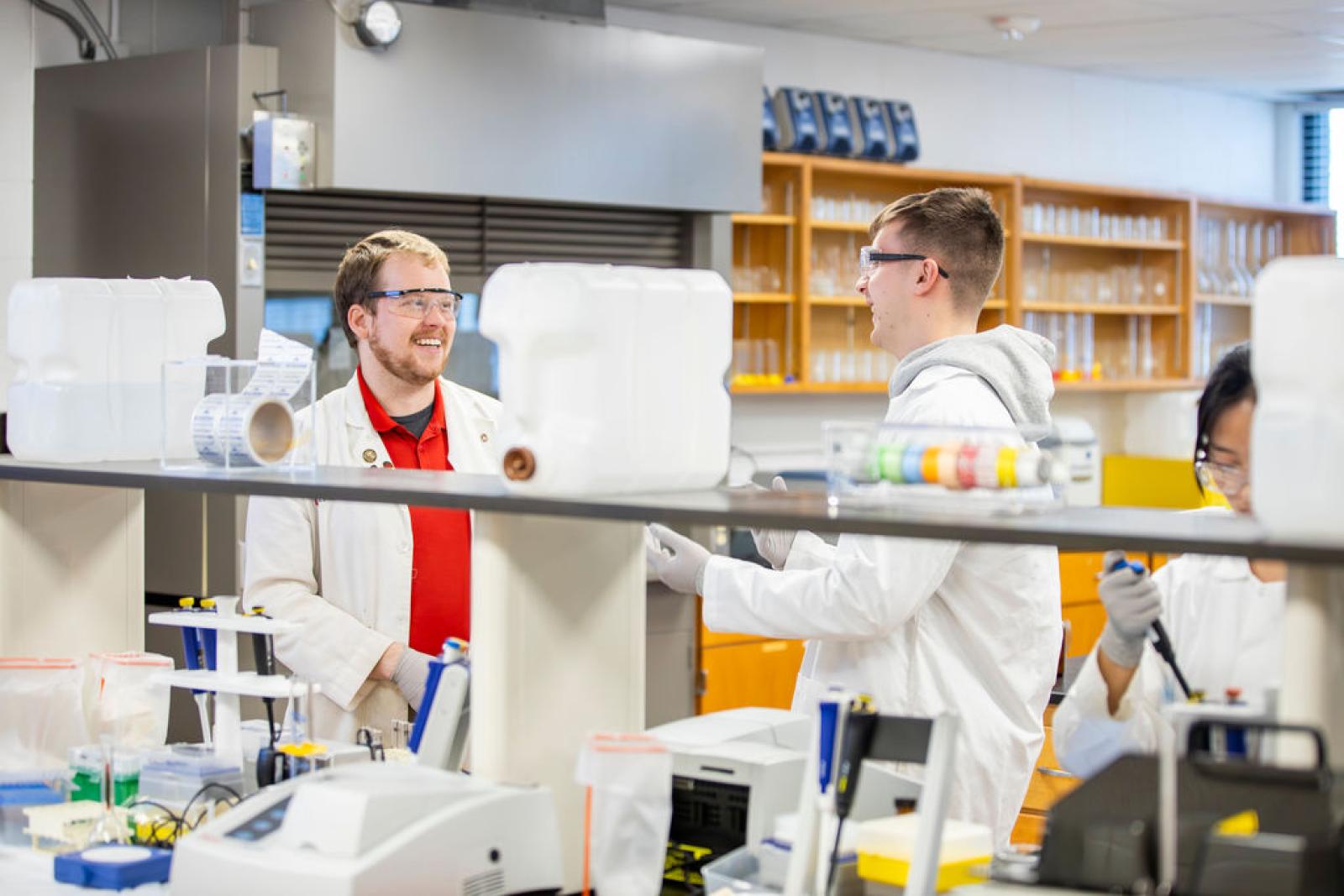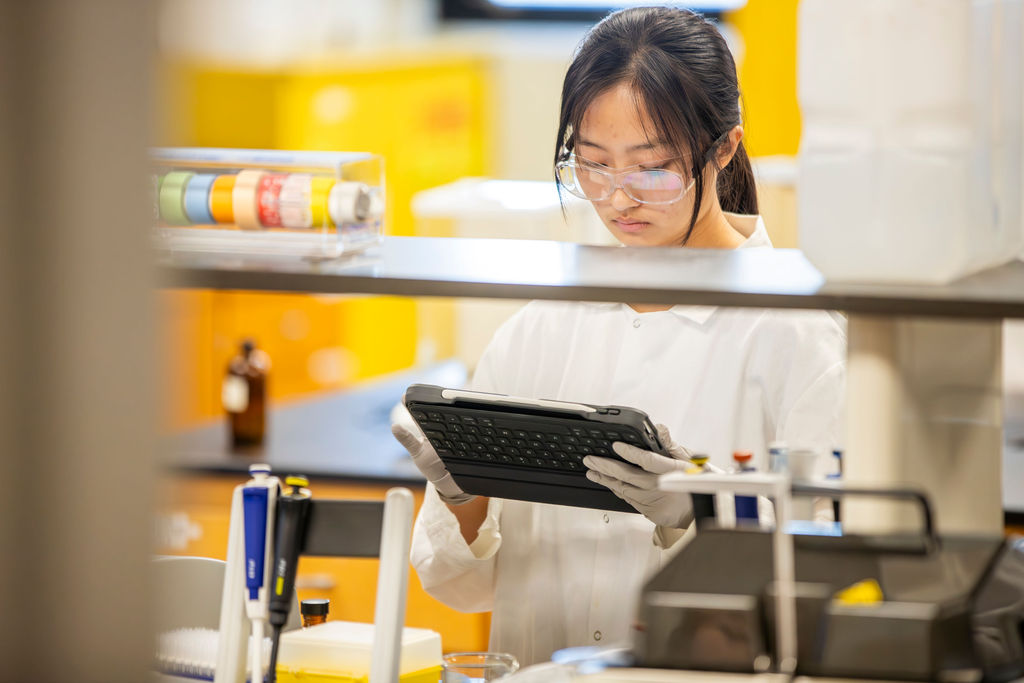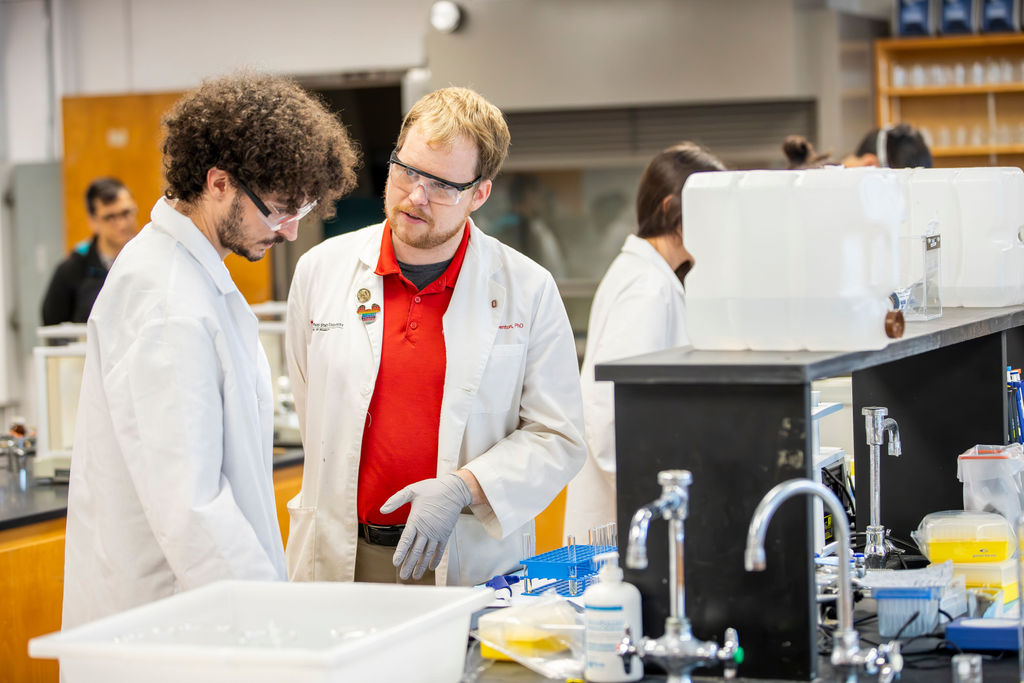Nick Denton receives inaugural Hypothesis.is Social Learning Innovator Award

Taking the leap from high school- to college-level content is a major shift for any student, especially within the world of pharmaceutical sciences, where students’ success relies heavily upon strong research literacy. That makes reading comprehension a major focus for instructors like Nick Denton, PhD, associate professor of pharmacy education and innovation at The Ohio State University College of Pharmacy, who help cultivate foundational skills for new students to use throughout their careers.
To help his Bachelor of Science in Pharmaceutical Sciences (BSPS) students develop research literacy, Dr. Denton uses an online platform called Hypothes.is that hosts content and allows users to engage with it through the practice of social annotation.
Impressed with Dr. Denton’s success in utilizing their program to achieve impressive improvements in class culture and comprehension, Hypothes.is presented him with their inaugural Health and Science Social Learning Innovator Award on Dec. 6 at the virtual 2023 Social Learning Innovator Awards.

Having spent years working on his own research literacy, Dr. Denton knew just how much it could help students if they received guidance throughout their reading process. His idea to provide continuous support took the shape of social annotation.
“Social annotation is the idea of taking assigned readings and putting them on a platform where students can highlight, comment and see each other's questions on the text,” Dr. Denton explained. “Traditionally this has been used to engage individual students, but what I was interested in was how we might use comprehension questions to guide students through the reading and task them to leave their own questions and answer their classmates’.”
Dr. Denton uploads his reading assignments to the Hypothes.is platform with comprehension questions and the necessary space for students to ask and answer their own. This tailored form of social annotation has turned the heavy load of scientific reading into a class-wide effort.
With this proactive approach, Dr. Denton said that students are more comfortable following up on their questions in class and drawing out discussions for deeper understanding.
Additionally, the dreaded "cold call" has taken a leave of absence from Dr. Denton’s classrooms.
“There’s a lot more psychological safety for students under this ‘warm calling’ method,” he said. “It’s been absolutely game-changing to the point where I can get almost the entire class to participate in a journal discussion as opposed to the two or three students who may have been really interested in the paper.”

The success of this course restructuring isn’t just anecdotal. Dr. Denton has taken his expertise in cancer biology research and applied it to the social sciences, investigating the results of his social annotation structure.
In collaboration with the Ohio State Department of Psychology, Dr. Denton has implemented the social annotation strategy into four courses. The instructors of these courses had students complete the Persistence in the Sciences (PITS) survey before engaging with annotations and then again as the courses progressed.
Alongside the survey results, researchers gauged student engagement through reflection activities throughout the semester, which were coded by research assistants to identify common themes.
The collected data from this strategy shows improvements in student comprehension over time and identifies which student groups saw the greatest improvement and which forms of social annotation strategy have been the most conducive to learning.
With results indicating near-perfect student engagement levels, Dr. Denton is now looking to further explore how this community-learning style can support underrepresented groups in the classroom.
“I’ve talked to students surprised at their ability to tackle high-level research papers,” Dr. Denton said. “The first paper or two that you look at is like reading a whole different language, but once you can break it down and build up confidence, students can use these experiences as a stepping stone into their own independent research. That’s been a huge win in my book.”
Learn more about Dr. Denton’s research findings by watching his presentation from the Hypothes.is Liquid Margins seminar series here.